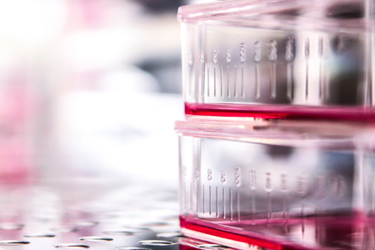Transcriptome Profiling Of Human PSC‐Derived Cerebellar Organoids Reveals Faster Commitment Under Dynamic Conditions

Replicating cerebellar development in vitro remains a challenge, but human-induced pluripotent stem cells (iPSCs) offer a potential solution. This application note explores the innovative use of single-use Vertical-Wheel™ bioreactors to generate scalable and reproducible human iPSC-derived cerebellar organoids. Through transcriptome profiling, dynamic culture conditions were shown to significantly accelerate cerebellar commitment, demonstrating faster differentiation timelines compared to static methods. Enrichment of extracellular matrix (ECM) components under dynamic conditions enhanced the organoids' microenvironment, fostering a robust neuronal network. Key topics include protocols for aggregate generation and differentiation, insights into ECM’s role in cerebellar development, and large-scale production advantages facilitated by dynamic bioreactors.
These findings pave the way for advanced applications in drug screening, toxicological studies, and neurodegenerative disease research.
Access the full application note to explore detailed methodologies and transformative insights for optimizing cerebellar organoid production.
Get unlimited access to:
Enter your credentials below to log in. Not yet a member of Bioprocess Online? Subscribe today.
